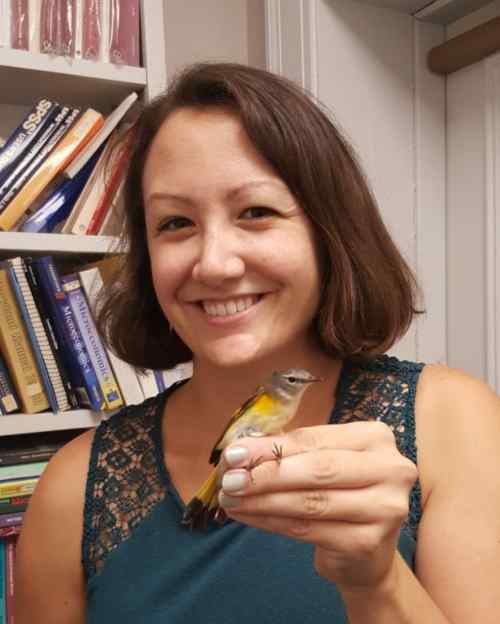Biology Major & Minor
The Biology major is designed to help students develop a strong and broad background in biological science.
Students may choose an Area of Emphasis while earning their B.S. in Biology that provides more indepth coursework in one of three areas: Cell/Molecular Biology & Infectious Disease, Ecology & Evolution or Physiology & Organismal Biology. If a student wishes to focus within an area of emphasis, the student’s Senior Capstone Experience (SCE) must also be designed with that focus in mind. The Biology Department also seeks to emphasize to its majors that the discipline of biology is intimately related to many disciplines outside of the sciences. As part of the major, students will gain an appreciation of the impact of biology on history, and they will appreciate the many philosophical and ethical questions that have biological underpinnings. Students are encouraged to find additional connections—to the humanities, to the social sciences, and to the other science fields—as they pursue their education.
Ready to declare a Biology Major or Minor? Fill out the declaration form below and then contact Dr.%20Rinehimer or Dr.%20Connaughton!
Declare a Biology Major or Minor
The Biology major is designed to help students develop a strong and broad background in biological science and seeks to emphasize to its majors that the discipline of biology is intimately related to many disciplines outside of the sciences. As part of the major, students will gain an appreciation of the impact of biology on history, and they will appreciate the many philosophical and ethical questions that have biological underpinnings. Students are encouraged to find additional connections—to the humanities, to the social sciences, and to the other science fields—as they pursue their education.
A strong knowledge base is essential for a biologist, but it does not alone make the scientist. Therefore, the Biology major seeks to guide students to develop the skills to ensure that, for them, biology is an inquiry-based discipline. Through ample opportunities for practice, students learn to:
- read, understand, and analyze biological literature;
- design, perform, and analyze experiments to ask questions and test hypotheses; use up-to-date techniques and equipment common in the discipline; communicate their questions and findings both orally and in writing; and
- work collaboratively on experimentation with fellow students and faculty who share a love of inquiry.
The combination of these three components of our mission—the strong knowledge base, the appreciation of the connections between biology and other academic areas, and the collaborative “doing” of biology—position students to become skilled biologists, lifelong independent learners, and citizen leaders.
Many careers are available to students who have majored in biology. Some of these careers can be accessed directly by those with a B.S. in Biology. Others require—or can be enhanced by—post-graduate education. The Biology major seeks to ensure that graduates are well prepared for careers in biology research or teaching and for admission to graduate programs (M.S. and Ph.D.) and programs designed to train medical professionals. Among the many examples of the latter for which our students are well trained are medical school, dental school, veterinary school, pharmacy school, and nursing school, as well as programs that train the physician assistant, the physical therapist, and the occupational therapist.
The Biology Department offers classes for students enrolled in the first-year FYS program, distribution courses for nonscience majors, introductory level courses covering the breadth of the discipline, and diverse upper-level courses for majors. Undergraduate internship and research opportunities are available in departmental laboratories during both the academic year and the summer. Students can also participate in internships sponsored by off-campus laboratories through existing programs or those proposed by the student. A chapter of Beta Beta Beta, the national biological honor society, provides supplemental activities for students.
The nearby Chester River, a major tributary to the Chesapeake Bay, and the River and Field Campus afford excellent opportunities for ecological studies in a wide variety of biological subdisciplines. Another resource is the Virginia Gent Decker Arboretum, the collection of trees and shrubs on the college campus, in which students can also study a broad range of topics. Collaborative student-faculty research is an important focus of the department, and the Toll Science Center boasts personal labs for each of the faculty and a number of shared research spaces including a set of microsuites (fluorescence microscopy, cell, and tissue culture), the aquatic research facility, and a spacious research greenhouse.
- Graduates will demonstrate broad-based knowledge within the discipline of biology.
- Graduates will demonstrate fluency in scientific reasoning, experimental design, and data analysis.
- Graduates will demonstrate familiarity with current research techniques.
- Graduates will demonstrate an ability to search, read, interpret and synthesize the primary literature.
- Graduates will demonstrate an ability to effectively communicate scientific information in written and oral formats.
- Graduates will demonstrate an ability to work and learn in groups.
Why Biology at Washington College?
93% of our graduates are either persuing advanced degrees or working in science, health, or education. Here are just a few of the reasons our biology program may be right for you:
You’ll gain a greater appreciation of science as a process.
The emphasis here is on discovery-based learning, providing the knowledge and skills you’ll need to pursue vocations or advanced degrees in biology-related fields, including biochemistry, biopsychology, environmental science and medicine.You’ll find a real sense of community.
Small classes are taught in a state-of-the-art facility by professors (not teaching assistants!) who embrace their responsibility to recognize and encourage your potential. Biology students are typically bright, highly motivated, high achievers—just like you!
You can conduct significant research.
Whether you choose to stay on campus for our summer undergraduate research program, or pursue internship or research positions elsewhere, you’ll get plenty of real-lab experience. The senior research project we require of every major demonstrates your theoretical and practical knowledge.
Additionally, our students are invited to present and publish their work at professional conferences, are selected for internships at top institutions, and are admitted into some of the best post-graduate programs in the country.
Our location presents wonderful opportunities.
Washington College is just three blocks from one of the most beautiful rivers of the Chesapeake Bay. Students use the Chester River and the surrounding environs as a natural laboratory for scientific investigation.
Alumni Spotlights
Emily is a 2018 graduate who participated in the 3:2 Nursing Program with University of Maryland School of Nursing, where she has earned her MSN.
Josh is a 2019 graduate who participated in summer research and went on to work at the NIH.
Julie is a 2017 graduate who participated in our John S. Toll Summer Research program with Dr. Carr. Julie went on to pursue a Master's degree in entomology from Penn State University.

